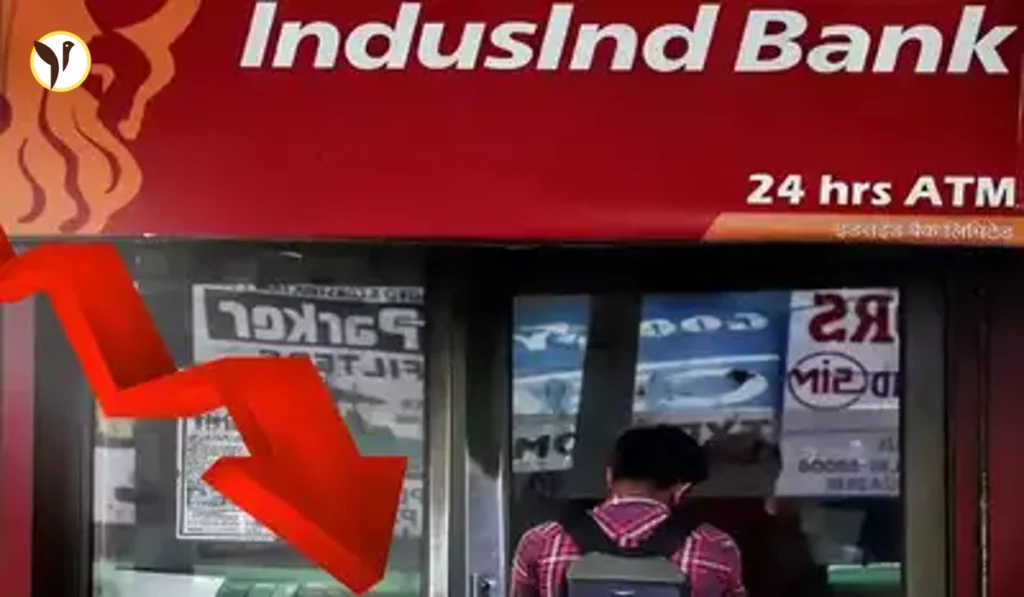IndusInd Bank Crisis: IndusInd Bank’s Financial Stability Under Scrutiny
Amid concerns following a significant drop in IndusInd Bank’s market capitalization, its promoter, Ashok Hinduja, has reiterated unwavering support for the lender. Speaking in media interactions, he emphasized that the bank remains financially strong and will receive full backing should any capital requirement arise.
The banking sector witnessed heightened volatility as IndusInd Bank’s shares plummeted by 26%, wiping out approximately Rs 18,000 crore in market value. The downturn stemmed from reported discrepancies in the derivatives portfolio, impacting the bank’s net worth by an estimated 2.35%.
Market analysts believe that while short-term concerns remain, the bank’s proactive disclosure demonstrates transparency and strengthens investor trust in the long run. Historically, similar financial discrepancies in the sector have been managed effectively, often with minimal long-term impact.
Promoters Express Confidence in Bank’s Leadership
Addressing investor concerns, Hinduja reassured that such fluctuations are part of routine banking operations. He acknowledged shareholder apprehensions over the lack of prior communication but underscored the bank’s commitment to transparency.
“Banking businesses are built on integrity and trust,” he noted, highlighting that the issue was proactively identified by the management rather than external auditors or regulators. The promoter group remains confident in the board and leadership team, reaffirming that past challenges were successfully navigated and this situation will be managed effectively as well.
Hinduja also pointed out that IndusInd Bank has successfully weathered multiple financial crises in its 30-year history. Previous instances of economic downturns, policy changes, and market shocks were efficiently handled by the management, strengthening the bank’s resilience.
Readiness to Inject Capital When Required
To strengthen investor confidence, Hinduja confirmed that the promoter group is awaiting regulatory approval to increase its stake in the bank from 15% to 26%. Once the Reserve Bank of India (RBI) grants approval, capital infusion will be initiated as needed.
“The capital adequacy ratio remains strong, even in the current scenario. However, should the need arise, promoters are fully prepared to inject additional funds,” he stated.
The bank’s strong financial position is further reinforced by its diversified revenue streams, healthy loan book, and robust risk management framework. Analysts suggest that even if additional capital infusion is required, the bank is well-equipped to meet regulatory requirements without significant dilution of shareholder value.

Transparency Appreciated Despite Market Reaction
Despite the market’s adverse reaction, Hinduja emphasized that IndusInd Bank took a proactive approach by disclosing the discrepancies itself. According to him, markets should have recognized the lender’s openness rather than reacting negatively to the revelation.
Meanwhile, the regulatory environment continues to influence stock movements. The RBI’s decision to grant a shorter-than-expected tenure for the reappointment of CEO Sumant Kathpalia contributed to the stock’s decline, with brokerage firms issuing downgrades following the announcement.
Experts argue that while the RBI’s decision raises governance concerns, the bank’s leadership stability remains intact. Market watchers are closely tracking future regulatory actions and the bank’s response to strengthen investor confidence.
External Review and Future Implications
An internal review had initially identified the discrepancies in the derivatives portfolio, leading to an estimated Rs 1,500 crore potential impact on profits. However, as external auditors assess the matter, the final financial impact remains uncertain.
Banking industry experts believe that external audits will provide greater clarity on the extent of financial adjustments required. Similar discrepancies in the past have often been rectified without long-term damage, provided corrective measures are promptly implemented.
Hinduja remains optimistic, stating that regulatory bodies will work in tandem with the bank to ensure stability. In addition, he stressed that IndusInd Bank’s commitment to transparency and governance will continue to drive its long-term growth strategy.
Market Reactions and Investor Sentiment
Despite the recent stock decline, several financial analysts maintain a cautious outlook, suggesting that once regulatory approvals are secured and external reviews are completed, market confidence could rebound. Some institutional investors have already indicated their willingness to retain their holdings, betting on the bank’s ability to overcome short-term setbacks.
Additionally, past precedent suggests that well-managed banks experiencing temporary financial turbulence tend to recover with strong institutional backing. The situation at IndusInd Bank mirrors previous cases where effective leadership and decisive action led to eventual recovery.
Investors and stakeholders will closely monitor RBI’s forthcoming decision on promoter stake expansion and the final audit results to gauge the bank’s long-term stability. While short-term uncertainties persist, the proactive measures taken by IndusInd Bank signal a commitment to addressing financial discrepancies transparently and efficiently.


